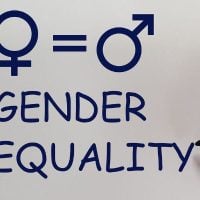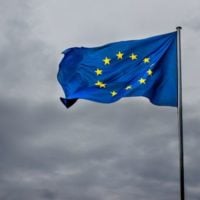Deadline: 2-Apr-24
The Ministry of Europe and Foreign Affairs (MEAE), the Ministry of Sports and the Olympic and Paralympic Games (MSJOP), the Organizing Committee for the Paris 2024 Olympic and Paralympic Games, the National Sports Agency (ANS ), the Erasmus+ France Youth & Sport Agency, the French National Olympic and Sports Committee (CNOSF) as well as the French Paralympic and Sports Committee (CPSF), are cooperating within the framework of the 2024 edition of the call for projects (AAP) in support of decentralized “Sport” cooperation.
Priority Objectives
- The 2024 AAP in support of decentralized “Sport” cooperation aims to:
- support international partnerships between communities and support the integration of sporting practices into local life;
- promote sport as a tool for implementing territorial public policies, in the spirit of Olympic/Paralympic values and the SDGs;
- help involve local authorities around the world in the dynamics of the Paris 2024 Olympic and Paralympic Games;
- promote French territorial expertise in sports.
- Its ambition is to initiate the strengthening of the place of sport in decentralized cooperation.
Fields of Intervention
- Projects must fall into one or more of the following fields of intervention.
- First field of intervention: making sport a lever for sustainable development of territories, in line with the 2030 Agenda.
- Faced with the multiple challenges faced by territories and their inhabitants (health, climate, economic, social), sport is a means of supporting the implementation of transitions (ecological, democratic, digital) and building resilience. Furthermore, sport, through the values it advocates and the physical and mental skills it transmits, can facilitate the personal development of individuals but also strengthen the collective capacity to act within territories.
- Its impact is recognized for the achievement of numerous SDGs: Health and well-being (SDG 3); Quality education (SDG 4); Gender equality (SDG 5); Decent work and economic growth (SDG 8); Reduced inequalities (SDG 10); Sustainable cities and communities (SDG 11); Responsible consumption and production (SDG 12); Measures relating to the fight against climate change (SDG 13); Aquatic life (SDG 14); Life on land (SDG 15); Peace, justice and effective institutions (SDG 16); Partnerships for the Goals (SDG 17).
- Local authorities can thus use sport to increase the effectiveness of their existing cooperation projects in terms of sustainable development, or propose new ones that use sport to better respond to the challenges of their territories. The Paris 2024 legacy and sustainability strategy is based around the four priorities below into which the projects must fit.
- Sport to move more:
- practicing sports to combat a sedentary lifestyle and prevent chronic diseases;
- practicing sports to improve mental health and contribute to personal development.
- Sport to educate and engage:
- sport to transmit values, gain self-confidence, learn to live together;
- sport to improve concentration and perseverance skills in favor of development and the fight against dropping out of school.
- Sport as a tool for inclusion, equality and solidarity:
- sport to develop employability and re-mobilize populations far from employment, develop and promote transversal skills;
- sport to promote the role of women, fight against stereotypes, enable their emancipation;
- sport as a space where, for people with disabilities, difference is valued;
- Sport as a driver of the ecological transition:
- values and sports practice to nurture a different relationship with nature and the environment, develop more respectful and sustainable lifestyles;
- sports practice and sporting events as unique platforms to raise awareness among populations and to develop innovations that drive the fight against climate change.
- Second field of intervention: mutually strengthening the sporting capacities of the territories to develop access to sport for all.
- If local authorities can improve the effectiveness of their public policies on health, education, social inclusion and the promotion of peace through sport, they must also contribute to making sport accessible to all, whatever their circumstances. age, sex, physical condition or countries of origin of the practitioners. Both leisure sport and competitive sport can offer great opportunities in terms of personal development but also employability and improvement in the standard of living of those who practice them. Hosting major sporting events can also generate significant economic benefits thanks to the attractiveness generated. Faced with this observation, French and foreign local authorities can commit together to create the conditions for the development of sport in their territories. Their cooperation is essential to build local sectors with an international dimension, which contribute to the influence of territories and the fight against global inequalities in access to sport.
- Please note, DAECT does not finance the construction of infrastructure, nor the arrival of high-level sports delegations as part of the preparation of athletes for the Olympic and Paralympic Games in Paris 2024.
- Third field of intervention: promoting the French language through sport.
- In 2024, France will host the Olympic and Paralympic Games in Paris as well as the Francophonie Summit in Villers-Cotterêts. In this context, the projects that respond to this call will be able to promote the French-speaking world through sport.
- First field of intervention: making sport a lever for sustainable development of territories, in line with the 2030 Agenda.
For more information, visit MEAE.









































